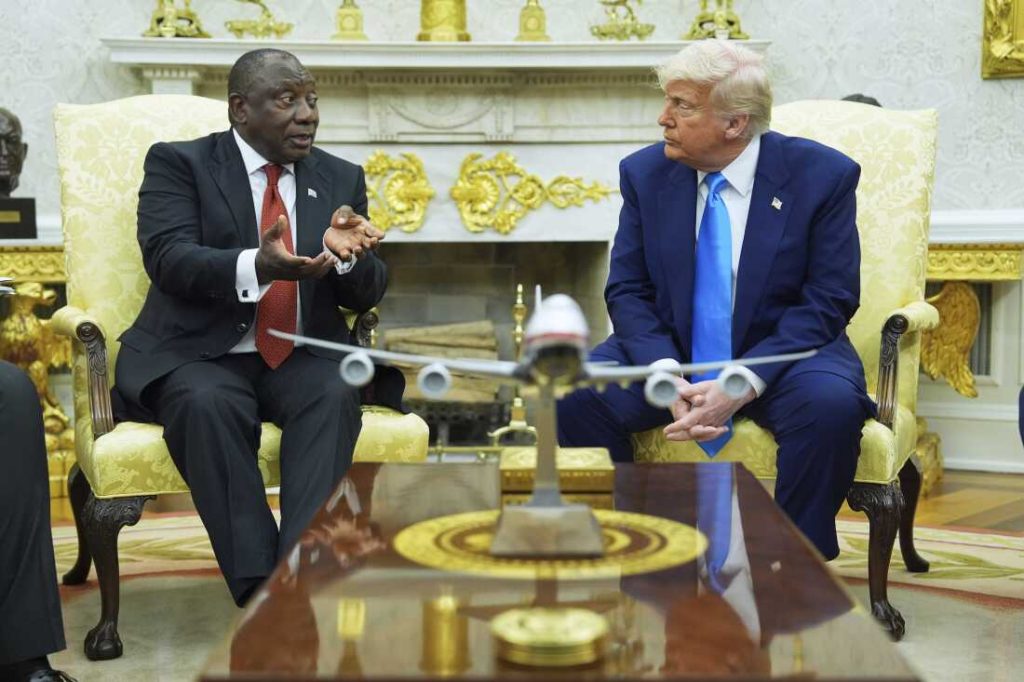In a politically charged development, the recent inclusion of South African business magnates in a delegation to meet with US President Donald Trump has ignited a heated debate on sovereignty and the influence of private wealth in international relations. Key figures in this dialogue are accused of undermining the narrative of a genocide against white Afrikaners in South Africa, a claim that Trump appears to champion.
During an interview with broadcaster Newzroom Afrika, African National Congress (ANC) Secretary General Fikile Mbalula acknowledged Trump’s pivotal role in shaping the composition of the delegation, noting that Trump specifically requested the inclusion of prominent South Africans, including billionaire Johann Rupert. Mbalula stated, “He did refer to these South Africans, which he thought that it is important that they be part of the delegation because he knows them for some time and the president [Cyril Ramaphosa] agreed to that.” This assertion has raised eyebrows regarding who truly guides South Africa’s foreign policy.
At the heart of the matter lies the troubling narrative surrounding the safety of white South Africans. Mbalula asserted that the purpose of including figures like Rupert was to “lay those matters to rest,” suggesting that there is a pressing need to counter the allegations of impending genocide, which have taken centre stage in some political discussions, particularly those emanating from the Trump camp.
However, not all voices in South Africa agree with this approach. The Economic Freedom Fighters (EFF), a prominent opposition party, has openly condemned what they describe as “an exhibition of the undue influence of big business” on governmental affairs. EFF spokesperson Sinawo Thambo offered a scathing critique, stating, “Trump and Ramaphosa have allowed their benefactors and funders to influence and control the relations between South Africa and the United States, undermining the people of both nations.” This stark warning highlights concerns over the erosion of democratic principles in the face of financial power.
The EFF has drawn a controversial parallel between Rupert and tech mogul Elon Musk, presenting them as “two sides of the same coin.” Their critique identifies Rupert as a “hard-nosed Afrikaner,” accusing him of actively opposing land expropriation without compensation, a hot-button issue in South African politics. The party asserts that neither Ramaphosa nor Rupert holds the authority to make irreversible assurances about the country’s legislative framework or policies.
“The EFF reserves all of its rights to challenge back-room dealings which undermine the will of the people and the Parliament of South Africa, in our courts of law,” Thambo reiterated, signalling an intention to pursue institutional measures against perceived governmental overreach influenced by private interests.
As the relationship between South Africa and the United States continues to develop under the influence of notable business figures, the interplay between private wealth and political power raises critical questions about who truly shapes the narrative within the realm of international diplomacy.



